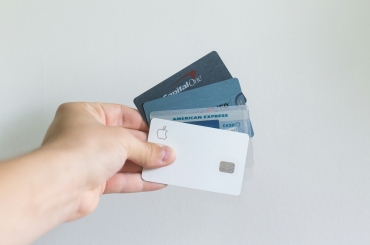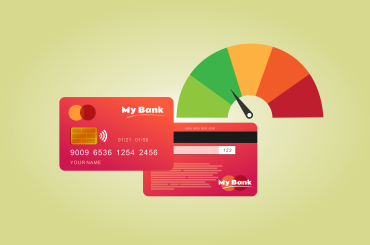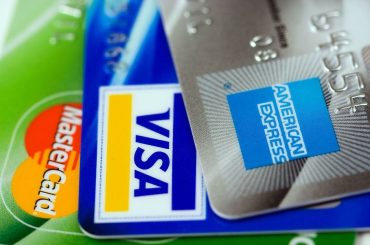This blog post may contain references to products or services from one or more of our advertisers or partners. We may receive compensation when you click on links to those products or services.
Believe it or not, having more than one credit card is beneficial to the financial health of your credit history. One of the common myths of owning a credit card is having one too many. But, nowadays, I’ve noticed that the problem most people have is sticking to only one credit card. The one credit card only practice is most likely a result of being fearful of fees and the disciplinary actions of managing many credit cards. However, the fact of the matter is that credit card bureaus and financial institutions want to see much more than that one credit card on your record. If you plan on ever taking out a loan for a mortgage or a car purchase, you may have to reevaluate your credit card game plan to help build your credit history and score if you currently have one credit card.
Think about it this way. If you had two candidates to give a $10,000 personal loan to, would you choose the person with only one credit card or the person with five credit cards with much more relations with financial institutions? Of course there is much more to the equation, but more often than not, you want to build your credit history by demonstrating that you can pay on time each month, have multiple credit cards and many other factors that I will be discussing about in this piece.
Credit card utilization
There are six main credit card factors that go into determining your personal credit score upon evaluating your financial history and record of paying your credit card on time. One of those factors happen to be credit card utilization, which is how much credit card use balance you carry in a month’s span compared to your overall credit card total limits. This factor has a short memory in the sense that each month your credit score may take a hit because of a large purchase, but may easily recover the following month because its short memory nature.
The ideal target you want to have your credit card utilization is just under 10 percent.
Paying on time
The number one rule to building a solid credit score and history is paying on time. At the end of the month, make sure to double check, maybe even triple check to make sure those auto-pay services are actually paying off your monthly credit card statements. Having a great track record of paying on time tells financial institutions that you are a low-risk investment and you will pay back their money on time. Don’t overthink this part. Just pay your credit card in full each month and it will pay dividends.
Clear up any derogatory marks on file
If you have had any history with collections, bankruptcies or civil judgements on your file, make sure to clear those up as they may be weighing your credit score down. Derogatory marks on file have a high impact on a person’s credit score and may take many weeks in advance for a score to recover from any derogatory marks. Although each case is unique, be sure to try to resolve any issues on file for your score to recover as soon as possible.
Age of open credit card accounts
The average age of your credit history has a medium impact on your credit score. Although there isn’t much you can do to impact this credit factor immediately, it is just something to keep in mind when opening and closing credit cards. Sometimes, it may be beneficial in keeping an old credit card with no annual fee just to boost your credit age for an increased score. I would not stress about this factor as much, but it is just something to keep in mind because having a high credit age just like anything that relates to age, takes time.
Anything under four years is relatively new. Anything above is stellar.
Total accounts
Now, for the moment of truth. How many accounts should one have in order to build relations with financial institutions to help build their credit history. My recommendation is to eventually have anything above eleven accounts. Do realize that accounts aren’t just credit cards, it takes into consideration various loans, credit cards, and other means. The reason why you want to have many accounts that are paid in full each month is to showcase that you are a responsible adult that will be of little to no risk to the lender.
Number of hard inquiries
Hard inquiries are basically checks on your account from a financial institution. You can expect to receive a hard inquiry when you apply for a brand new credit card, get credit checked from taking out a possible loan, and etc. The impact of hard inquiries have a immediate effect on your credit score, however, over time your score recovers and the impact of the hard inquiry fades in time. Hard inquiries generally stay on record for up to two years.
Now you may be like, how do I track all of this if I’m lazy? The answer is Credit Karma. But in all seriousness, I recommend checking Credit Karma out if you are still trying to learn the ins and outs of how to manage multiple credit cards, while trying to maintain a steady course to having an excellent score and track record on file. By being proactive about maintaining your score, you will get the benefit of the doubt of many loan opportunities at unbeatable rates much faster. The financial flexibility of having a good credit score is just second to none because you never know when you might need it before it is too late.
Before I conclude this blog post, there are several tips I follow by that I would like to share. If you plan on taking out loans or require services that involve credit, I recommend not opening or closing any credit cards within a year’s span if possible. Currently, in order to get the best interest rate and to take advantage of the credit market is to plan accordingly and time your purchases. And also know, it is never too late to start building credit. I got my first credit card under my name when I was 18, and since then it has paid dividends. I still have that credit card to this day for you know, that increased average credit age.
Become an Insider
Editorial Disclaimer: The editorial content on this page is not provided by any of the companies mentioned and has not been endorsed by any of these entities. Opinions expressed here are author's alone
The content of this website is for informational purposes only and does not represent investment advice, or an offer or solicitation to buy or sell any security, investment, or product. Investors are encouraged to do their own due diligence, and, if necessary, consult professional advising before making any investment decisions. Investing involves a high degree of risk, and financial losses may occur.





















1 Comment
Pingback: How I Travel for Free with Credit Card Points – Albert Fang